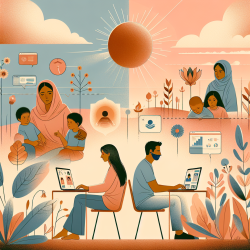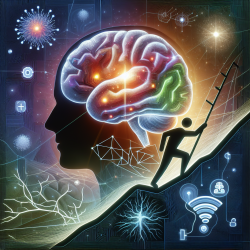Understanding the cultural context of patients is crucial for practitioners, especially when working with diverse populations. The research article titled "The doctor's medicine and the ambiguity of amulets: life and suffering among Bangladeshi psychiatric patients and their families in London – an interview study – 1" by Littlewood and Dein (2013) provides valuable insights into the experiences of Bangladeshi psychiatric patients and their families in London. Here are some key takeaways that can help practitioners improve their skills and encourage further research.
Key Findings and Implications
The study highlights the coexistence of biomedical and traditional healing practices among Bangladeshi psychiatric patients. Patients often trust both doctors and traditional healers, but they also face ambiguity and suspicion regarding local Islamic clerics and traditional healers. Understanding this dual trust can help practitioners navigate the complexities of patient beliefs and treatment adherence.
- Trust in Biomedical Treatment: Despite cultural beliefs, many patients and families expressed trust in biomedical treatments provided by psychiatrists. This trust can be leveraged to improve treatment adherence and outcomes.
- Role of Traditional Healers: Traditional healers and amulets (tabij) play a significant role in the lives of these patients. Practitioners should acknowledge these practices and work with patients to integrate them into the treatment plan where appropriate.
- Cultural Sensitivity: Practitioners need to be culturally sensitive and understand the local context of their patients. This includes recognizing the significance of spiritual beliefs and practices in the patients' lives.
Encouraging Further Research
The study underscores the need for more research on the mental health experiences of Bangladeshi communities in Britain. Understanding the cultural nuances and health-seeking behaviors of these communities can lead to more effective and culturally appropriate interventions.
Practitioners are encouraged to explore the following areas for further research:
- Impact of Cultural Beliefs on Treatment Outcomes: Investigate how cultural beliefs and practices influence the effectiveness of psychiatric treatments.
- Integration of Traditional and Biomedical Treatments: Explore ways to integrate traditional healing practices with biomedical treatments to improve patient outcomes.
- Family and Community Support: Examine the role of family and community support in the mental health of Bangladeshi patients.
To read the original research paper, please follow this link: The doctor's medicine and the ambiguity of amulets: life and suffering among Bangladeshi psychiatric patients and their families in London – an interview study – 1.










